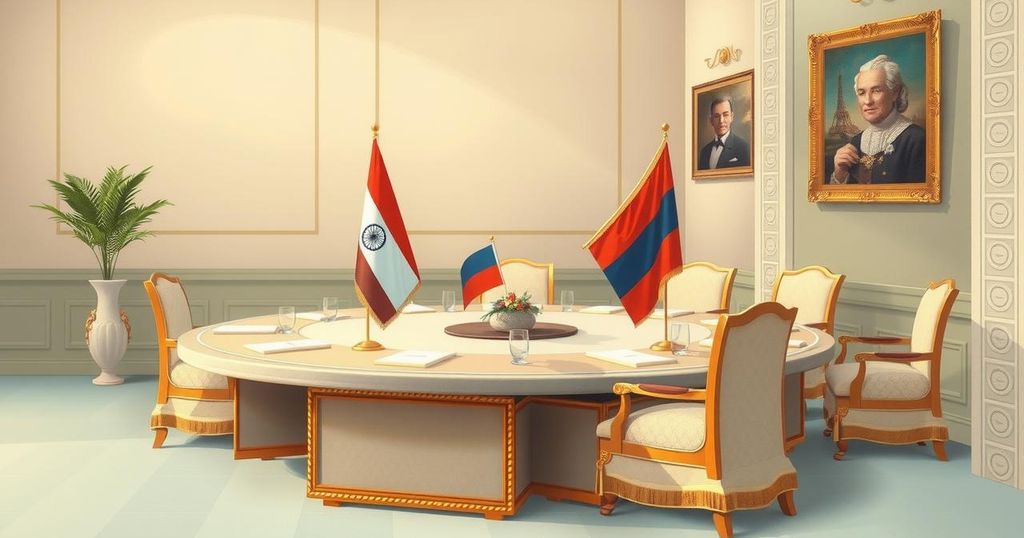Sergei Shoigu’s Visit to North Korea: Strengthening Ties with Kim Jong-un

Sergei Shoigu met Kim Jong-un in Pyongyang to enhance Russia-North Korea cooperation. This visit follows Kim’s earlier statements on expanding bilateral relations. The two nations are collaborating on drone production and military support amid ongoing international tensions.
On March 21, 2023, Sergei Shoigu, the Secretary of the Security Council of the Russian Federation, visited Pyongyang to meet with North Korean leader Kim Jong-un. This visit aligns with Kim Jong-un’s expressed desire to strengthen cooperation with Russia, particularly after his statements in the autumn of the previous year.
During his visit, Shoigu participated in a ceremonial wreath-laying at a monument dedicated to Soviet soldiers, as reported by Russian media outlets. This act underscores the historical ties between the two nations and signifies a symbolic gesture of friendship and mutual respect.
Significantly, North Korea has been pursuing collaboration with Russia, specifically in the field of unmanned aerial vehicles (UAVs). Reports indicate that an agreement was reached in February for North Korea to receive technical assistance from Russia to develop drones for mass production, highlighting the strategic partnership established last year.
The ongoing military collaboration includes North Korea dispatching personnel to Russia amidst its invasion of Ukraine, indicating a deepening relationship between the two countries punctuated by shared defense and military interests.
These developments illustrate a growing bond between Pyongyang and Moscow, reflecting both nations’ interests in mutual support against international pressures.
Sergei Shoigu’s visit to North Korea emphasizes the strengthening of ties between Russia and North Korea, particularly in defense cooperation. The agreement on drone development and ongoing military personnel exchanges signify an expanding relationship, driven by shared strategic interests amid the global geopolitical landscape. This partnership continues to evolve, potentially impacting regional dynamics.
Original Source: unn.ua








